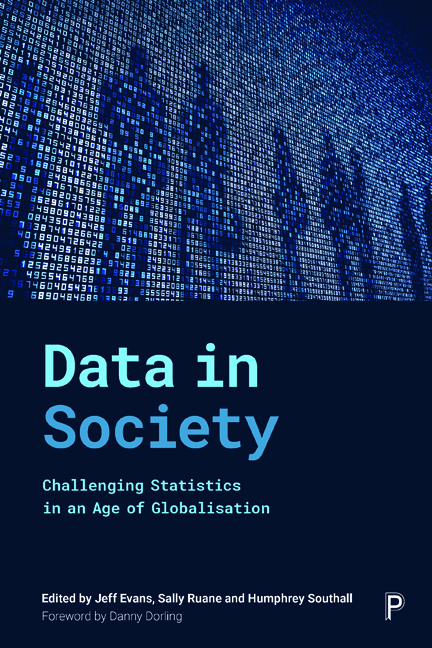Book contents
- Frontmatter
- Contents
- List of figures, tables and boxes
- Notes on contributors
- Foreword
- Preface
- General introduction
- Part I How data are changing
- Part II Counting in a globalised world
- Part III Statistics and the changing role of the state
- Part IV Economic life
- Part V Inequalities in health and wellbeing
- Part VI Advancing social progress through critical statistical literacy
- Epilogue: progressive ways ahead
- Index
23 - The Radical Statistics Group: using statistics for progressive social change
Published online by Cambridge University Press: 30 April 2022
- Frontmatter
- Contents
- List of figures, tables and boxes
- Notes on contributors
- Foreword
- Preface
- General introduction
- Part I How data are changing
- Part II Counting in a globalised world
- Part III Statistics and the changing role of the state
- Part IV Economic life
- Part V Inequalities in health and wellbeing
- Part VI Advancing social progress through critical statistical literacy
- Epilogue: progressive ways ahead
- Index
Summary
Introduction
The Radical Statistics Group is a longstanding independent network where members and interested citizens critically evaluate statistics and research, and use them to promote democratic causes. Its 200- plus members include not only statisticians, but also research workers and campaigners on a variety of issues, mainly in the UK. It focuses on statistics relating to public policy making, health, education and general welfare. Discussion takes place via an email-based discussion list and social media, through a range of publications, and face-to-face at the annual conference and other meetings. The group works directly to promote clearer understanding and better usage of statistics, but much of its impact comes through providing support to actions by members and others on specific issues of public policy and governance.
The group has changed with the times. While its organisation was originally based on ‘subgroups’ allied to radical health, education, anti-racist, peace and democratic movements, there are fewer active subgroups now – just as there are fewer such social movements – currently in the UK. The group's journal contributions have become more academic, often taking articles from students and young researchers, or from more experienced academics who wish to try out new ideas – or to reach an audience which is sympathetic to politically progressive sentiments.
Throughout these years the Group has frequently returned to themes of statistical literacy, the availability and reliability of data especially on neglected issues, and the social functions of quantitative analysis. Although many of its members are academics, the organisation has focused on debate and practical support for campaigning organisations, while encouraging contributions from non-academic writers without seeking a standard style or length. Open annual meetings discuss the Group's future activity but rarely set an organisational policy.
Despite its own members’ relative diversity of opinions, Radical Statistics has maintained a perspective critical of the establishment. Statistical practice is seen as closely related to economic interests, especially through the funding of data collection and analysis, as argued in the concluding chapter of Statistics in Society (Dorling and Simpson, 1999b). The Group has frequently asked ‘whose interests are being served?’ and allied its publications and meetings to campaigns of antiracism, of publicly funded healthcare, of teachers’ working conditions, and against weapons of mass destruction.
- Type
- Chapter
- Information
- Data in SocietyChallenging Statistics in an Age of Globalisation, pp. 307 - 318Publisher: Bristol University PressPrint publication year: 2019



